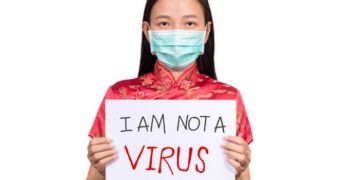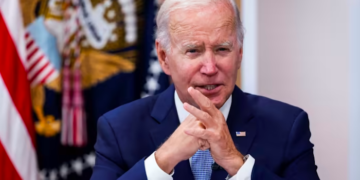After Zou’s positive Covid-19 test at one of Shanghai’s largest quarantine centers, she hoped she wouldn’t have to wait too long to return to her job as a cleaner.
But even now, four months later, she is still fighting to get back to work, along with dozens of other recovering Covid patients in China who are experiencing what labour rights activists and health experts say is a widespread form of discrimination in China’s zero-Covid policy.
China is the only major economy still actively working toward eradicating the virus through measures such as emergency lockdowns and widespread testing.
Positive test takers and their contacts are isolated in central quarantine facilities, while an outbreak in a factory can halt all production for days.
Migrant workers and young people in China are particularly hard hit by the strict regulations, but rights groups say the rules are fueling discrimination related to Covid and keeping thousands of people out of the job market.
People avoid us because they are afraid they will catch the virus from us, said Zou, who only provided her surname out of fear of retaliation for speaking to AFP.
“During the interview process, recruiters will look at your entire Covid testing history, which could span months.”
According to Jin Dongyan of Hong Kong University’s School of Biomedical Sciences, China’s strict control measures have resulted in stigma against not only recovered patients but also their families, neighbors, friends, and even frontline healthcare workers.
To believe that people who have been infected once will continue to carry the virus and be infectious long after recovering is “unscientific,” Jin told AFP.
“Because of a lack of education, some worry that infected people are more likely to become infected again, but this is not the case.”
There is currently a legal battle going on between Zou and her employer, who has refused to pay her wages since she became ill and who uses her medical history as an excuse to prevent her from returning to work.
Shanghai Yuanmao BPO, the service provider where she worked, has declined to comment due to the ongoing legal proceedings.
He Yuxiu, a pseudonym, is a Chinese social media influencer who was hiding out in Ukraine before Russia’s invasion and is now being “treated like a virus.”
She returned home after escaping the war and worked as a Russian language teacher in Hebei province, north China.
However, she lost her job after her university found out she had contracted Covid-19 in Ukraine.
I never thought I’d lose my first job for this reason,” she said in a video she posted on Weibo, China’s version of Twitter.
If we were a virus and we managed to eradicate it, why should we be treated like one now?
The stigma is so pervasive that last month, Shanghai factory employers explicitly stated that they would not hire anyone with a history of Covid-19 infection.
It was reported last month that a young woman who had been unable to find work or return to her village because of Covid-19 Stigma of having been infected had lived in a toilet for weeks at the Hongqiao railway station in Shanghai.
And after public outcry, a theater in the southern Chinese city of Foshan removed a sign that prohibited cured patients from entering the establishment.
“Sheep people,” aka “little people.”
Beijing’s National Health Commission and human resources ministry banned discrimination against recovered Covid patients last month, with Premier Li Keqiang calling for severe punishments for violators.
however, activists and job seekers are skeptical.
Employment agent Wang Tao said that even after the city announced anti-discrimination rules, factories in Shanghai still refused to hire recovered workers out of fear of a mass outbreak or health inspections.
Even though they need more workers, “some factories give different excuses,” Wang said.
The only people who get rejected are the ones who have previously tested positive.
Foxconn, who makes the iPhone, was one of eight companies contacted by AFP, but all of them refused to comment after being accused of engaging in discriminatory practices by Chinese state media.
Aidan Chau, a researcher for the rights group China Labour Bulletin, said, “It is very difficult for workers to protect their rights since most employers offer different excuses and it is hard to prove that a labour law has been violated in these cases.”
“Trade unions must take the lead. However, many medium- and small-sized manufacturing facilities lack such an asset.”
People who have tested positive in China are often referred to as “little sheep people” online. When spoken aloud, the Mandarin words for “positive” and “sheep” sound identical.
The Shanghai cleaner, Zou, said, “It is very difficult for recovered patients to go back to our normal lives.”
Our past infection records will cast a shadow over us wherever we go in growing Covid-19 Stigma.
–AFP





























